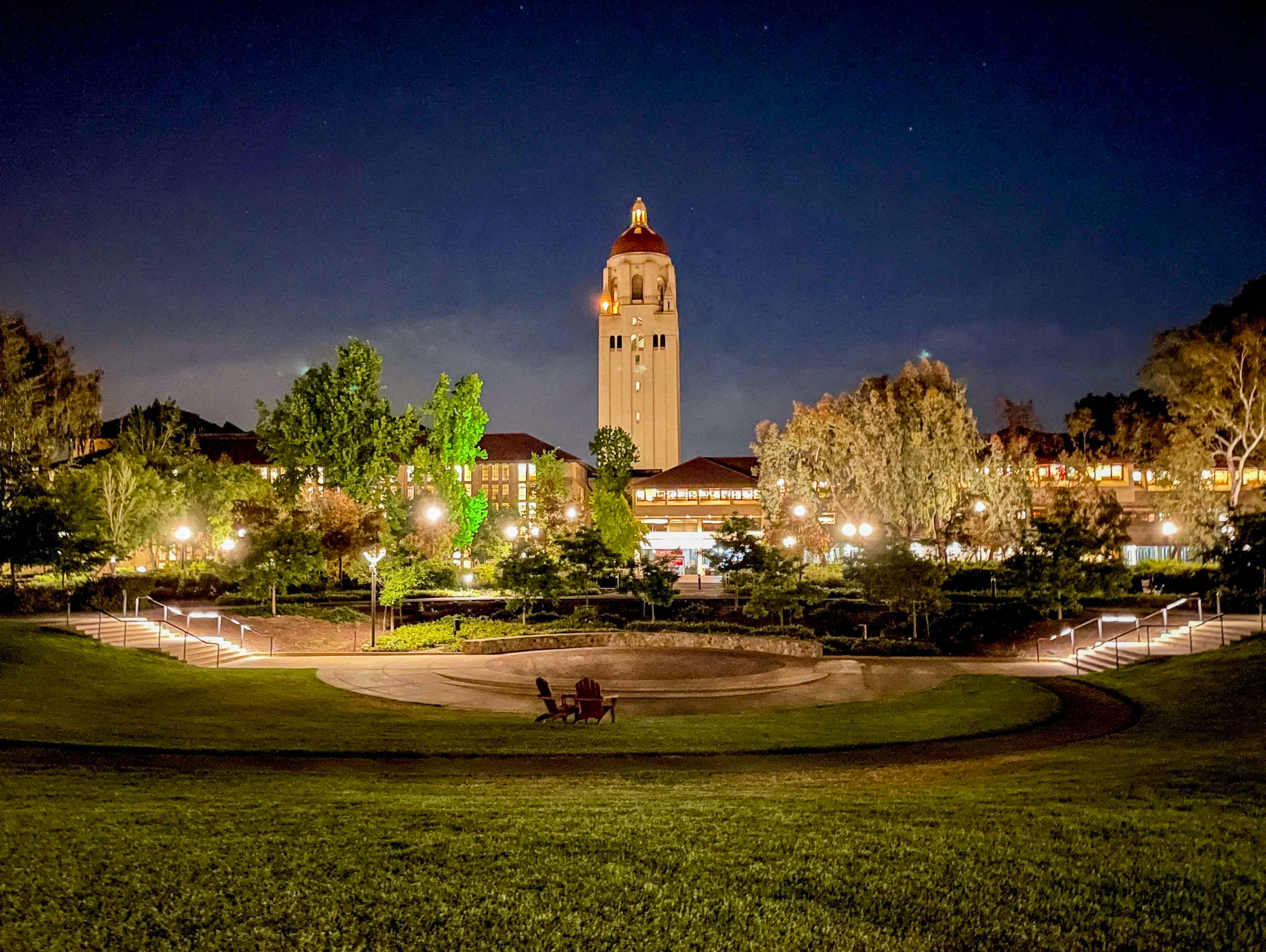We were five minutes late. I wanted to be just late enough to miss the set-up; I didn’t want to get there before it started and have to talk to people. It was my second week at Stanford, and my social battery was lower than it had ever been.
The group was hush-quiet and already cross-legged on Meyer Green. The organizer would invoke a name. We would repeat it. The organizer would tell us about that person. Casualty, the news might call it. Martyr, the organizer said.
A girl who hosted her school’s radio and dreamed of being an architect. An Al-Jazeera reporter who put himself in danger and vowed he would see his family again. A father who worked day and night to give his daughters a good education. A nurse, killed while healing others. I repeated every name, trying to etch it into my mind. This wasn’t a political statement; this was honoring people. Every name I heard felt so vivid to me, to the point I wasn’t sure where I and the people on the Green ended and the martyrs began. The worst thing is, I don’t fully remember all the names anymore, and the names I do remember, I wouldn’t be able to spell, which I think defeats part of the purpose of the vigil.
After this, we had five minutes of silence. This was the most impactful part of the vigil for me. Two planes flew by, and I imagined what it would feel like if they were carrying bombs. A nearby group of girls was giggling especially loud, and I imagined girls on the streets of Palestine, Lebanon, Yemen giggling about their teacher’s receding hairline or the canteen food or the she-saids of girlhood, and I imagined those girls on campus, and I knew so many of these children were no more. Remembering them is not a political statement; this is grief. Every voice I heard during those five minutes was at risk of death, and it was potent and stirring, and terrifying. Just me and the silence and the names of the dead heavy on my tongue.
After that, someone recited an original poem for Palestinian liberation. Then, “I Will Resist” was recited. A well-known poem, it was found in George Jackson’s prison cell. George Jackson was a Black Panther killed by prison guards in 1971 during an escape attempt. The poem was originally published under his name before being traced to Palestinian poet Samih al-Qasim. This is a poem of resistance for Palestine, echoed by Jackson in his endeavors as a Black Panther. It is a poem fighting against the odds.
After that, a speaker presented on the love ethic. The need for community in this time, to support identities they may not be a part of. They spoke on Palestinian and Arab pain and the movements built around it. After that, a dua – or prayer – was recited. Allah was invoked to heal the hurt, to take the martyrs to paradise, to forgive the killers. This was not a political statement; this was love.
And, then it was over, and I wanted to hug everyone that spoke because I could feel their grief alongside my own. I wanted to talk to them in community, like Valarie Kaur had said in this week’s SLE sushi salon. I remembered Kaur saying, “You are a part of myself I do not yet know,” and that is what every person on that lawn felt like.
I feel killing is bad. I do not know the realistic alternative. I do not want to make a political statement, but I can tell you the reality of my grief for those losing their lives. Is that enough to change anything? Is it enough to say that a kid from New Jersey wants these people to live? Is it enough to say that I want to get the chance to know these people, these parts of myself — Israeli, Palestinian, Yemeni — those dying in poverty, those in disease? Tell me you know they are not numbers, tell me you understand with me that each of these people is someone on this campus, that they are you, that they are a part of you that is being lost. When we lose anyone before their time, we lose so much, and to feel that grief, we must look upon them as individuals. Say their names, hear their stories, imagine that they are us and we are them.
I didn’t hug anybody, or talk to anyone. My friends and I walked back silently to FloMo. It was the longest the group of us had been together and silent. Eventually, someone brought up last year’s presidential trial scandal. I went back inside my dorm. I noticed there was a yellow bug on my leg, so I went back outside and shook it off.
